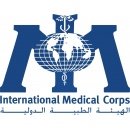MEAL Officer
International Medical Corps is working to relieve the suffering of those impacted by war, natural disaster and disease by delivering vital health care services that focus on training, helping devastated populations return to self-reliance. IMC has been working in Gaza since 2009 and is currently implementing a project to support health service provision in partnership with local NGOs.
International Medical Corps never asks job applicants for a fee, payment, or other monetary transaction. If you are asked for money in connection with this recruitment, please report to International Medical Corps at the website provided at the end of this document.
International Medical Corps is currently looking for MEAL Officer.
Capacity: Full-Time Contract
Desired Start Date: 01. June 2024
End date: 31. August 2024
Location: West Bank.
Reports to Country Program Coordinator
MAIN TASKS AND RESPONSIBILITIES
IMC’s policies, guidelines, and procedures
- Actively promote Prevention of Sexual Exploitation and Abuse (PSEA) standards within IMC and amongst its
- Contribute to the creation of a positive image and overall credibility of the organization, notably through the application of the Code of Conduct, ethics, values, and standpoint with regards to internal and external actors.
- Apply the basic monitoring, evaluation, accountability and learning concepts and the purpose of MEAL, with a specific focus on accountability to affected populations (AAP).
- Support the implementation of policies and procedures for monitoring, evaluation and reporting in the country specific to AAP and CHS commitments.
Project design and planning
- Participate in needs assessments by organizing the training for enumerators on assessment methodology, tools, respondent’s selection and supervise field team to ensure field level data integrity.
- Ensure that MEAL activities are participatory and uphold accountable and useful MEAL
- Support in developing results framework and log frame, including indicators, for simple
MEAL system
- Ensure that different components of the MEAL system are functional and relevant and maintain IPTT to track output, outcome, and impact indicators and their measurement in the different sectors of relevance.
- Support MEAL department in development of databases for all programs by using available technologies.
- Organize and lead data collection activities following the data collection and reporting flow put in place for a
- Use tools for tracking project's progress and bottlenecks and develop simple data collection tools based on monitoring indicators.
- Maintain effective M&E system (ensure data collected translates to the M&E Framework/IPTT).
- Conduct regular field
- Conduct periodic data analysis and triangulate data from other MEAL
Data quality management
- Conduct periodic data quality audits to assess the quality of collected data for
- Mitigate data pitfalls, issues, and ensure that strategies for quality data are in
- Report data quality issues to the MEAL Manager/Coordinator.
- Adhere to the fundamental concepts of data
- Conduct on-site routine data quality audits at community
- Assess the quality of collected data for
- Provide supportive supervision on data quality at facility and community-levels.
Sampling
- Implement probability and non-probability sampling techniques as and when appropriate after consulting with
- Develop sampling frame and carry out sampling following instructions (manager, guidelines).
Qualitative and quantitative techniques
- Use different qualitative and quantitate methods of data collection including structured/ semi structured interviews, key informant interviews, in-depth interviews, group discussions, focus group discussions and direct observations as an M&E tool.
- Conduct trainings on qualitative techniques for data collection for MEAL staff, program staff, and
- Develop and use key qualitative tools (observation checklists, guide for group discussion and interviews) for monitoring purposes.
- Apply the different interview techniques (structured/semi-structured) and use appropriate questionnaires for monitoring purposes as and when appropriate.
- Engage with communities on accountability and conduct community consultations with understanding of social dynamics and ensure data is collected representative of populations.
- Conduct regular/when required site visits to monitor data collection process to ensure data quality.
Mobile and manual data collection
- Determine the appropriate data collection tool based on the purpose, advantages and disadvantages of mobile data collection techniques.
- Install and configure mobile data collection tools (OKD collect, Kobo collect, ONA collect, etc.) on smart phones or
- Design simple questionnaire using XLS form and configure mobile phones and tablets for mobile data
- Use smart phones/tablets for data
- Provide training to MEAL staff and enumerators on mobile data collection mechanisms and software and provide technical support and troubleshooting during all stages of mobile data collection, ensuring data is transferred from mobile devices and the devices are securely stored (sign in/sign out system for enumerators) and ensuring devices are charged.
- Data analysis, including use of statistical
- Perform data cleaning and ensuring data integrity before data
- Organizing and overseeing data entry and data
- Perform descriptive univariate and bivariate data analysis using Excel Pivot tables or statistical
- Interpret frequency tables, bi-variate cross tables, the mean and
Evaluation design.
- Contribute to the preparation of project evaluation and facilitating the field level
- Use and supervise quantitative, qualitative, and mixed methods of data collection in
Techniques for presenting information.
- Communicate clearly the findings of monitoring activities and reviews against targets set by the
- Compile data and indicators at the project's level for reporting in a clear and concise manner, providing all required information.
- Develop information products to share results of data analysis and
- Drafting reports of assessments and surveys
Knowledge Management and Learning
- Organize the documentation of the project's MEAL activities, results, and
- Organize secondary data (internal and external sources).
Community Based Feedback and Response Mechanism
- Adhere to key concepts and commitments regarding accountability to affected populations (AAP), including IASC CAAP, CHS, and Sphere Humanitarian Charter.
- Ensure that all data collected via the CBFRM has been reported to the manager in a timely manner, by creating a complaints database.
- Support Accountability officer and/or MEAL Manager/Coordinator in implementing and monitoring the CBFRM, accountability initiatives, and practices across the Mission.
- Support the implementation of methodologies to consult communities on their preferences based on the operational context.
Cross-cutting themes
- Monitor the general context through regular field visits and report issues affecting beneficiaries and intra-community relations.
- Conduct community consultations and engage with communities to ensure accountability by applying different interview techniques (structured/semi-structured).
- Ensure data collected is representative of population and demonstrate an understanding of social
- Promote and incorporate considerations to the different needs of vulnerable groups, including people of different sex, age, and disability status, into all MEAL systems and activities.
- Support or lead in the implementation of gender analyses and gender assessments as required, including staff capacity building on tools and protocols; data collection; data analysis; and report writing.
- Ensure tools and systems are in place for learning and decision making on the needs of vulnerable groups, including disaggregation of all data, development of mainstreamed and specific indicators, specific research questions, and targeted recommendations in reports.
- Perform other duties as assigned. The duties and responsibilities listed in this document are representative of the nature and level of work assigned and not necessarily all inclusive.
Code of Conduct
As applicable to this position, an individual must promote and encourage a culture of compliance and ethics throughout the organization and maintain a clear understanding of International Medical Corps’ and donor compliance and ethics standards and adheres to those standards.
If this is a supervisory position, one must set an example of ethical behavior through one’s own conduct and oversight of the work of others; ensure that those who report to you have sufficient knowledge and resources to follow the standards outlined in the Code of Conduct & Ethics; monitor compliance of the people you supervise; enforce the Code of Conduct & Ethics and International Medical Corps’ policies, including the Safeguarding Policy and the Protection from Harassment, Bullying and Sexual Misconduct in the Workplace Policy, consistently and fairly; support employees who in good faith raise questions or concerns.
Safeguarding
It is all staff shared responsibility and obligation to safeguard and protect populations with whom we work, including adults who may be particularly vulnerable and children. This includes safeguarding from the following conduct by our staff or partners: sexual exploitation and abuse; exploitation, neglect, or abuse of children, adults at risk, or LGBTI individuals; and any form of trafficking in persons. Staff are also responsible for preventing violations to our Code of Conduct and Ethics, which may involve Conflicts of Interest, Fraud, Corruption or Harassment. If you see, hear or are made aware of any violations to the Code of Conduct and Ethics or Safeguarding Policy, you have an obligation to report.
Equal Opportunities
International Medical Corps is proud to provide equal employment opportunities to all employees and qualified applicants without regard to race, color, religion, sex, sexual orientation, national or ethnic origin, age, disability or status as a veteran.
جميع الحقوق محفوظة لموقع جوبس.
Qualifications and Skills:
- Typically, bachelor’s degree in social sciences, public health, statistics, or international development, with experience in MEAL. Equivalent combination of relevant education and experience may be substituted as appropriate.
- Typically, 3+ years of relevant and progressive experience with a humanitarian organization in implementing and overseeing monitoring and evaluation system.
- Knowledge of data pitfalls, issues, and strategies for assessing the quality of collected data.
- Knowledge of commonly used probability and purposive sampling techniques and different methods of qualitative and quantitative data collection and analysis.
- Knowledge of descriptive univariate and bivariate data analysis using Excel Pivot tables or other advanced analysis software.
- Knowledge of indicators and their measurement in the different sectors of
- Understand the concept of participatory monitoring, evaluation, accountability, learning, and needs
- Excellent proficiency in Microsoft Office applications, including Word, Excel, Outlook, and
- Strong training facilitator/presentation
- Effective communication and interpersonal
- Have the analytical, conceptual, and strategic thinking
- Manage performance by setting clear
- High-level English proficiency (Speaking – Reading – Writing)
- High-level MISSION’S LANGUAGE proficiency (Speaking – Reading – Writing).
How to apply.
- Interested and qualified individuals are encouraged to fill the application in the link below no later than May 19, 2024.
Fill the application:
- CVs and Cover Letter must be submitted in English.
- Only short-listed candidates will be contacted.
Website for Contracts misconduct: www.InternationalMedicalCorps.ethicspoint.com. Please do not submit your CV or application to this website, it will not be considered for review.









